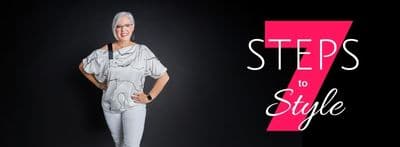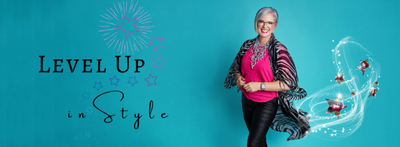When I was a teenager my parents wanted me to be a musician or an architect. They were the two professions my parents had decided were right for me (without asking my opinion). Instead I went and did a degree in communications (even though they tried to talk me into their desired professions). I did what I was interested in, not what they wanted me to do. One of my best friends did a degree in economics, not because she was interested in economics, but because her parents wanted her to do that (they were also economists). We had opposite frames of reference.
How do you know if you’ve done a good job with something? Do you ask for feedback from others, or do you just have an innate sense that you have?
If you ask for feedback, you most likely have an external frame of reference. You prefer to be told feedback from others and are more externally motivated, liking to have a team around you who work with you and guide you in your work and life.
If the answer was “well I just know” then you are most likely to have an internal frame of reference and are self-guided in work and life, being your own authority figure.
Your frame of reference relates to how you determine your needs and desires as well as how we determine our success.
Of course we may relate more to external frame in some aspects of our life (say with our work) and more internal (with your exercise regime). An external frame of reference is great in a learning environment.
I know I’ve got an internal frame of reference and it means that being self-employed is ideal for me as I don’t need any authority figure to tell me what to work on, or the hours I need to work, what is well done and what needs improving upon. I’ve never worried about what my parents think, nor do I ask others opinions about what I should do. I just make decisions about my life and I’m self-motivated enough to follow through.
The only issue with having an internal frame is that people may see me as arrogant or I may miss something as I don’t ask for other’s opinions. It’s important every now and again to ask how I can improve on what I do and not ignore the thoughts and opinions of others.
Now most kids start off with an external frame of reference as they ask for guidance in what they should do and need to be told right from wrong. Some people remain externally referenced and really need constant feedback from their boss and workmates to know that they are on the right track (by the way, if you have an internally referenced boss or workmates, they are less likely to give you that feedback you crave as they don’t think about providing constant feedback as they don’t need it). You may also prefer team sports rather than individual pursuits as your team mates let you know instantly if you’ve done well or not.
How can you tell if someone is internally or externally referenced? Listen to their words when you ask them how they did with something. Externally framed people will often as “what do you think I should do” or “what do you think my chances are” etc. They will ask your opinion often, they are also more likely to offer feedback to you without being asked their opinion.
















So true! I am always really interested in this sort of information, that helps us to figure out who we really are. You would think it simple, but it is the hardest thing. Gretchen Rubin is great for info on whether we respond internally or externally etc – she has categories that she calls the four tendencies: upholder, obliger, questioner and rebel. There’s a quiz here if you’re interested: http://gretchenrubin.com/happiness_project/2014/03/quiz-are-you-an-upholder-a-questioner-a-rebel-or-an-obliger/
I think we are lost soul sisters from around the globe. I can relate to this post on many levels. I was also a communication major and cannot imagine having a boss dictate my job and use of time. Being a homemaker and mom allows me the opportunity to dictate my day and goals. More often than not, my internal dialog assures me that what I am doing is beneficial and wise. It could be be because I analyze things in my head and attempt to visualize the outcome of my choices. Also, I am introverted so I value the self examination moments. Thanks for the post.
NICE post! Thanks!
I love this post! It has given me the vocabulary to express what I have gained from reading your blog over the last few months. I have shifted my frame of reference. I used to have an internal one and now I have an external one. I used to never wear accessories because I felt overdressed – that’s not how it appears to others. Capsule wardrobes made me feel like I was always wearing the same things. It turns out it doesn’t look that way to others. Thanks so much Imogene, because this has been revolutionary for me especially as I return to work (and switch careers) after having kids.
I actually think that kids start off having an innate frame of reference, but parents quickly un-train that. A toddler doesn’t need anyone’s approval when he manages to pull himself up or takes his first steps, he is already extremely pleased with himself. But the parents train him with praises and coo over everything he does. This praise is often too oriented on external validation. A better way to do it is do strengthen the small kid’s internal validation, by commenting the kids achievements with “you must be so proud of yourself” “you did that all alone” or “that is a very interesting picture, tell me about it”.
I think you’re right – but there must be a personality element too that means some crave the attention of external reward